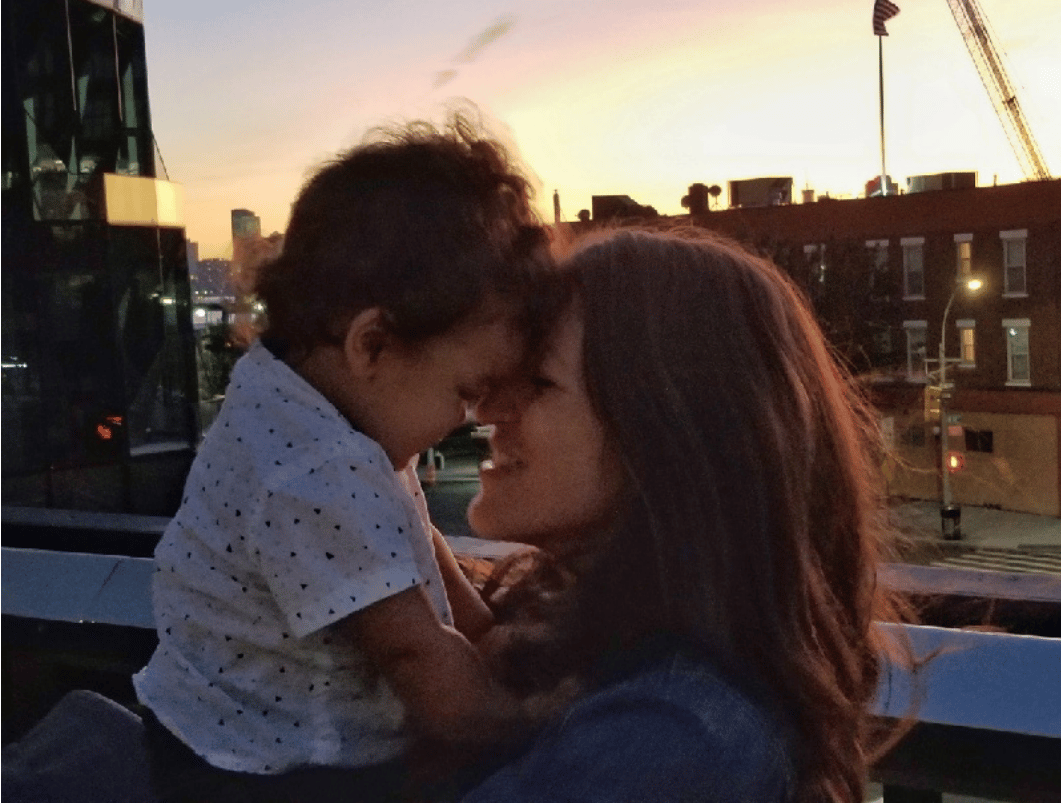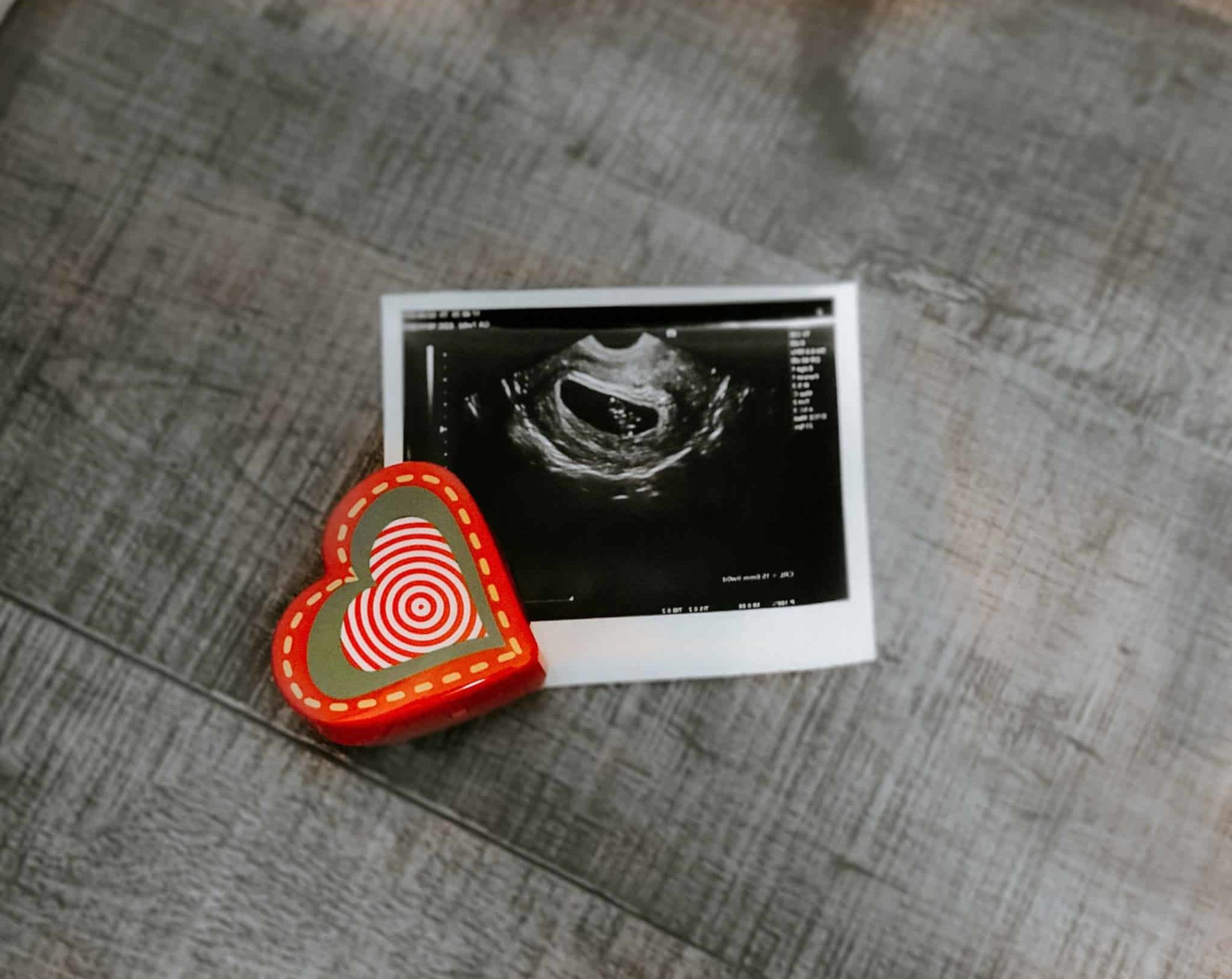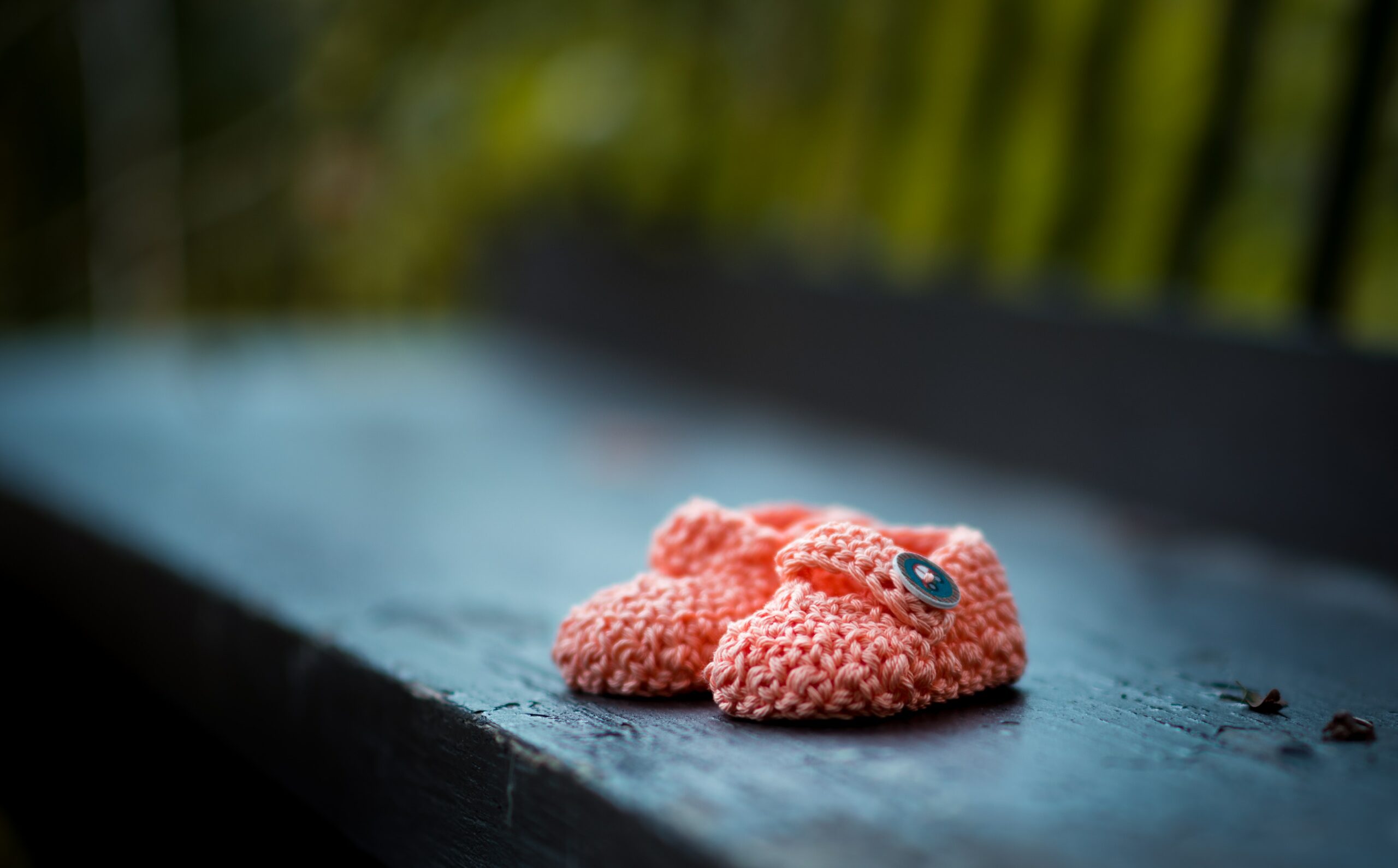
Health Info, Policy Updates
8.24.24 Voter Empowerment Alert
August 26, 2024
The FAQ-style toolkit to help you feel confident leading up to Election Day.
Deep Dive Articles
Publication Date: March 16, 2023
By: Katelyn P., NWHN Member

After the fall of Roe, we came across a public Facebook post of a woman who, in order to save one twin, had to terminate the other in utero. This is her story, told in her words. For anonymity, she calls herself “Katelyn.” This story is full of courage, resilience, and is profoundly human. We hope that Katelyn’s story inspires empathy and understanding. We also hope that it motivates you to take action to protect the right to abortion by fighting against the ever-increasing abortion bans plaguing our country, as the procedure that saved Katelyn’s son’s life is not legal under most of them.

We found out we were pregnant while visiting San Francisco. To say we were over the moon would be an understatement! Soon after our journey back home to Colorado, one of my best friends invited my husband and me over for dinner to celebrate the pregnancy. While we were driving to her house, she called to say that she just cut into a bell pepper and discovered two baby bell peppers inside. “
It’s a sign,” she said. “You’re clearly having twins.”
Just a week or two after that dinner, my friend was proven right. I will never forget my husband’s reaction as we looked at the sonogram, and he suddenly shouted, “IS THAT A SECOND ONE?!” Sure enough, a second little bean danced across the screen, and our OBGYN confirmed that we were indeed having two babies.
Once the shock wore off, I sobbed with excitement, called friends and family, and joined all the online twin groups I could to start preparing. We could not wait for these babies! And personally, understanding how unique twins are, I felt really special to have been chosen for this honor of being a mom to twins. While carrying those two babies, I felt like I had been hand-selected for the most important, most special job out there.
We walked into our first Maternal Fetal Medicine (MFM) appointment a little giddy. MFM doctors handle high-risk pregnancies, and a twin pregnancy is considered high-risk as a matter of routine. The purpose of this appointment was to check on the health of the babies using the more advanced MFM ultrasound machine. However, we weren’t concerned about the babies’ health. We have always lived healthy lifestyles; we were in our early 30s, and there was very little family history to be concerned about. So, really, we were just hoping to learn the sex of the babies (which we knew was a possibility but not guaranteed).
The ultrasound took a long time. So long, in fact, that I was quite literally falling asleep on the table. It wasn’t supposed to take this long.
The technician, friendly and talkative up to this point, became far less chatty and informed me that she was having some trouble getting everything she needed and that she was almost done. I asked if everything looked ok.
“The doctor will speak with you about it all shortly,” she replied.
I thought it was strange that she couldn’t just say “yes” and continue on. But I was so excited about these babies that I didn’t think much about it. Instead, I did my best to remain patient as my husband and I waited for the doctor to arrive.
Eventually, our doctor walked in. I remember her sitting down and saying very directly:
“Look, I don’t typically reveal the gender of twins until further down the line once we can absolutely be sure of all the organs. However, given your situation and what I just saw from your ultrasound, it is imperative that I tell you the gender of each baby. You are having a boy and a girl. The girl, Twin A, is showing abnormalities, and her chance of survival is uncertain.”
The room started spinning.
She then proceeded to tell us that to better understand our baby girl’s condition (and how it could affect our baby boy), they’d need to do an immediate amniocentesis. This, she explained, was a procedure where a hollow needle would be inserted into my uterus to take a sampling of amniotic fluid that would help screen for developmental abnormalities in our baby girl. Once the doctors had a better idea of her condition(s), they could let us know what we were facing so we could talk to specialists and properly prepare. The doctor spoke to us about the risks involved with an amniocentesis and the increase in risk with twins. She also shared the benefit of the procedure, as it would allow us to make informed decisions to best protect and support both babies.
My husband and I were given only a few short minutes alone to discuss our next steps. If we decided to move forward with the amniocentesis, the procedure would have to take place immediately, as it was too dangerous to do it at a later date.
I wish I could adequately convey what it feels like to discover, within a period of 5 minutes, that (a) we were having a girl and a boy,
(b) our baby girl was not healthy and would not live a full life if she survived past birth and
(c) that we had to choose instantly whether or not we wanted to move forward with a high-risk, invasive procedure to better understand the risks and complications that our baby was facing and how it could affect our other baby.
It was emotional and entirely overwhelming. In the end, we wiped away tears, moved forward with the amniocentesis, and prayed that our babies would be okay.
The next day, we went to our OBGYN to check the babies’ heartbeats. After we heard both heartbeats and saw our little ones moving around, our OBGYN broke down into tears. She was completely devastated with us. She said she sees all types of scenarios but that this “was too much to bear” and that we “shouldn’t be going through this…” Instead, we “should be enjoying this pregnancy and focused on planning the wedding” which was just a few weeks away. She gave us her personal cell phone number and told us to text or call whenever we wanted, with any questions, concerns, or needs.
We are still in touch to this day. I can’t imagine how we would have fared without her kindness, support, and care.
After many more tests and more tears, it was determined that the only way to save the pregnancy and deliver a healthy baby boy was to undergo a fetal reduction. In other words -we had to let one twin go so that the other could live.

The day of the reduction, I was numb. I was approximately halfway through my pregnancy and still hoping (pleading?) that a doctor would come in and tell me that they had accidentally called the wrong family. That all the many specialists who called us with bleak updates had gotten it wrong and that our baby girl was actually completely fine.
I don’t remember everything from that day. But I do remember the doctors and nurses telling my husband that he couldn’t be in the room with me. I remember crying uncontrollably and eventually crying softly. I remember the doctors and nurses being really kind and reminding me that women are incredible and that we are capable of anything.
However, once the procedure started, my doctor’s demeanor changed, as she moved away from being a comfort and more into “job mode” (which I can’t entirely blame her for). She began getting frustrated with me, telling me I needed to stop crying because it was causing my belly to move, which was preventing her from doing the procedure safely. I remember seeing the ultrasound of the two babies. I remember them not being successful with the first attempt because my bladder was too full. I remember them stopping the procedure and having me hobble out of the room and down the hall to the bathroom. I was stained with tears, bleeding, naked underneath the hospital gown, and petrified. After the second attempt, I remember them confirming to each other that my baby girl’s heartbeat had indeed been stopped. The doctor confirmed… double confirmed… triple confirmed… over my spent body as if I wasn’t even lying there. They then looked at me and told me that my son’s heart was still beating and that after three weeks, we’d be past the high-risk period of losing him, too, as a result of the procedure.
I vaguely remember my husband rolling me out in a wheelchair to our car. At that moment, I felt ashamed. I felt devastated. I felt soulless.
We went home, ordered take-out, and cried. We cried for days. We kept reminding each other why this was the best -and only -option for us and our twins.
The very next week, my husband and I got married. As the wedding day got closer, my mother called, emailed, and texted incessantly (or what felt like incessantly), asking questions about event minutia. It was well-meaning, but what flowers I wanted and where the tealights should be placed at our small reception felt so insignificant at that point -I couldn’t have cared less.
We told our families who were attending the wedding not to mention our pregnancy. Even after our wedding, I didn’t want our pregnancy mentioned. I tried to find clothes to hide my stomach as much as I could (which was impossible by that point), and I cried nearly every time some well-intentioned stranger asked me what I was having. I avoided most friends and family and had a very difficult time acknowledging my son during the pregnancy until the third trimester when I realized that he would likely survive. I then worked on wrapping my head around what a miracle he was.
Leading up to the birth, I was incredibly nervous and anxious. I knew I’d be giving birth to both of my babies and that only one would be alive.
I was concerned about the health of my son, how I would feel that day, and that any emotion I felt after the birth would be wrong. If I was joyful for my son, I was forgetting my daughter. If I was grieving the loss of my daughter, I was not present and grateful for my son. All of it felt traumatic.
Our son survived the birth, and we were thrilled. Interestingly, it wasn’t until the three of us were settled at home that I thought -and cried -about our daughter. That year was incredibly challenging for a number of reasons, including our son’s health complications the first six weeks of his life. Fast forward to when my daughter was born only 10.5 months after my son’s birth (oy!). While it was the biggest reminder to me that things happen just as they should (and that we were meant to have a boy and girl “together”), I found it very challenging to connect with my daughter for quite some time. Having her so shortly after the first traumatic pregnancy was such a miracle, but also really confusing. Joy alongside grief.
While I often think about what life would have been like with our baby girl twin and how different our world would be raising twins, I think I subconsciously locked a lot of my emotions away after my son was born just to keep our family afloat with all that we were experiencing. Strangely, this past summer, I thought about and mourned for our baby girl quite a bit. I imagine that after a challenging three years, this summer was the first time I was able to find space to truly process her loss.

My husband was incredibly supportive in all of this. It’s amazing to me that in our first year of marriage, we lost a child, had a child, spent many nights in the ER with our newborn, changed jobs, and moved twice -once across town and once across the country. I can’t imagine going through this without such a loving, supportive, and steadfast partner. I also can’t imagine going through this without doctors who truly cared and who were gracious, empathetic, and supportive.
I don’t know what I would have done if abortion had been illegal in Colorado at the time.
Would I have been paralyzed by fear? Doubtful.
Would I have tried to board a plane and get back to California (where I’m from) for the procedure? Potentially -but the emotional pain there sounds horrendous.
What would have helped make or break that decision? The thought alone is terrifying and tragic. I can’t imagine having zero rights over my own body and losing both of my babies as a result of a law that politicians -total strangers, miles away -made.
What a person does with their body and pregnancy is 100% their decision. It has nothing to do with you or me and should NOT be decided by anyone else except for the person carrying the baby. Especially not a stranger. Full stop.
If my twin pregnancy had happened post-Roe, I would have been scared and devastated, but I would have had options. This decision and the resulting state abortion bans overwhelmingly affect women of color and the most vulnerable people who do not have the same options I would have had. It affects those who can’t afford to hop on a plane or jump in a car to travel to a different state. It affects those who can’t take time off work or leave their children unattended overnight. It affects those who don’t have the resources, the support system, or the legal savvy to circumvent this heinous new normal.
Please, get involved in this fight. Use your voice. Have a conversation with that neighbor or family member who doesn’t believe that a woman should have a say over her own body. Use me as your example when discussing pro-choice. I want you to.
An attack on reproductive rights is an attack on all of us. The fall of Roe is inequitable, unjust, and a violation of our fundamental human rights.
We deserve better.
Learn more, and find out how you can make an impact from trusted, pro-choice sources like the NWHN, the Miscarriage+ Abortion Hotline, and Plan C. And, if you can, donate to the National Women’s Health Network, who helped me tell my story and who work every day to expand access to vital reproductive health care.
Our professional editing staff will work with you to make sure your contribution stands out. And don’t worry – we’ll take our lead from you on things like anonymity, important word choices, and accompanying imagery. Let us help you be seen, heard, and understood. Pitch us by filling out this short form, or just send us an email with your ideas at [email protected].
Liked this page? Donate today!
The information on this site is not intended or implied to be a substitute for professional medical advice, diagnosis or treatment. All content, including text, graphics, images, and information, contained on or available through this website is for general information purposes only.
The continued availability of external resources is outside of the NWHN’s control. If the link you are looking for is broken, contact us at [email protected] to request more current citation information.
